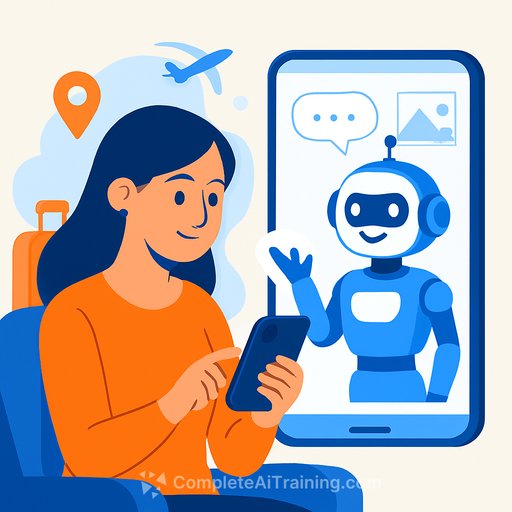MakeMyTrip Swings to a Quarterly Loss - And Puts AI at the Center of Its Next Phase
MakeMyTrip posted a net loss of $5.7 million in the second quarter of fiscal 2026, versus a $17.9 million profit in the same quarter last year. The previous quarter delivered a $25.8 million profit.
Top line held up: operating revenue rose 9% year-on-year to $229.3 million, up from $211 million. The company linked the loss to accounting effects from a $3.1 billion capital raise used to repurchase and cancel 34.4 million shares from Trip.com Group, and a $14.3 million foreign exchange loss tied to rupee depreciation. It also extended and expanded its share and debt repurchase program through March 31, 2030.
Quarter at a Glance
- Revenue: $229.3M (+9% YoY)
- Net result: -$5.7M (vs. +$17.9M YoY; prior quarter +$25.8M)
- Capital move: $3.1B raised; 34.4M shares repurchased and canceled from Trip.com Group
- FX impact: -$14.3M due to rupee depreciation
- Capital return: Share and debt repurchase program extended to March 31, 2030
Why This Matters for Strategy
The buyback cleans up the cap table and may improve per-share economics over time, even if it creates near-term accounting noise. It also signals confidence and tighter control over the company's future direction.
The FX hit underscores a continuing exposure for Indian OTAs. Hedging and pricing discipline will be as critical as demand growth, especially with leisure and business travelers staying price-sensitive.
The bigger call: AI isn't a side project. MakeMyTrip is making it central to product and distribution. If the assistant shortens search-to-book time, lifts attach rates, and reduces customer support load, that's material to margin and defensibility.
The AI Focus: How Indian Travelers Are Using Trip Planning Assistance
MakeMyTrip's Gen AI Trip Planning Assistant positions the booking flow around conversation. Here's where these assistants deliver practical value in travel:
- Trip ideation by intent: "3-day beach getaway under ₹25,000 in November," or "family-friendly hill stations near Delhi."
- Itinerary scaffolding: Day-wise plans with time estimates, map logic, and buffer time around check-ins and transfers.
- Price discovery: Alternatives by date window, nearby airports, or mixed modes (flight + train) to hit a budget.
- Policy and checklist help: Visa basics, ID requirements, and what to prep before departure.
- Micro-optimization: Stays near specific venues, local transport tips, and activity sequencing to avoid peak crowds.
For an OTA, the upside is clear: fewer dead-end searches, more personalized bundles, and higher conversion from a single chat thread. The risk is quality control-answers must be accurate, current, and consistent with pricing and inventory.
What to Track Next
- Assistant-to-booking conversion: Percent of AI sessions that end in a completed booking.
- Attach rate and AOV: Hotels, activities, insurance added per booking; average order value shifts.
- Time-to-book: How many interactions from first query to confirmation.
- Cost-to-serve: Deflection of support tickets and search queries handled by AI.
- Quality: Accuracy, refund/exception handling, and customer satisfaction.
- FX sensitivity: Mitigation of currency swings on unit economics.
Moves to Consider (If You're Building a Similar Play)
- Own the conversation loop: Integrate discovery, comparison, and booking in one chat thread. Reduce page hops.
- Instrument aggressively: Track prompts, drop-off points, and post-booking outcomes. Feed learnings back into ranking and pricing.
- Bundle smartly: Nudge hotels, activities, and insurance during the planning flow-not after.
- Guardrails first: Keep inventory, policies, and pricing authoritative. Use retrieval for accuracy and keep a human fallback.
- Hedge and message: Tighten FX hedging and clearly communicate the capital return framework after large buybacks.
If you're upskilling teams to ship AI features with measurable impact, a curated path can save months. See practical options by role here: AI courses by job.
Your membership also unlocks:






